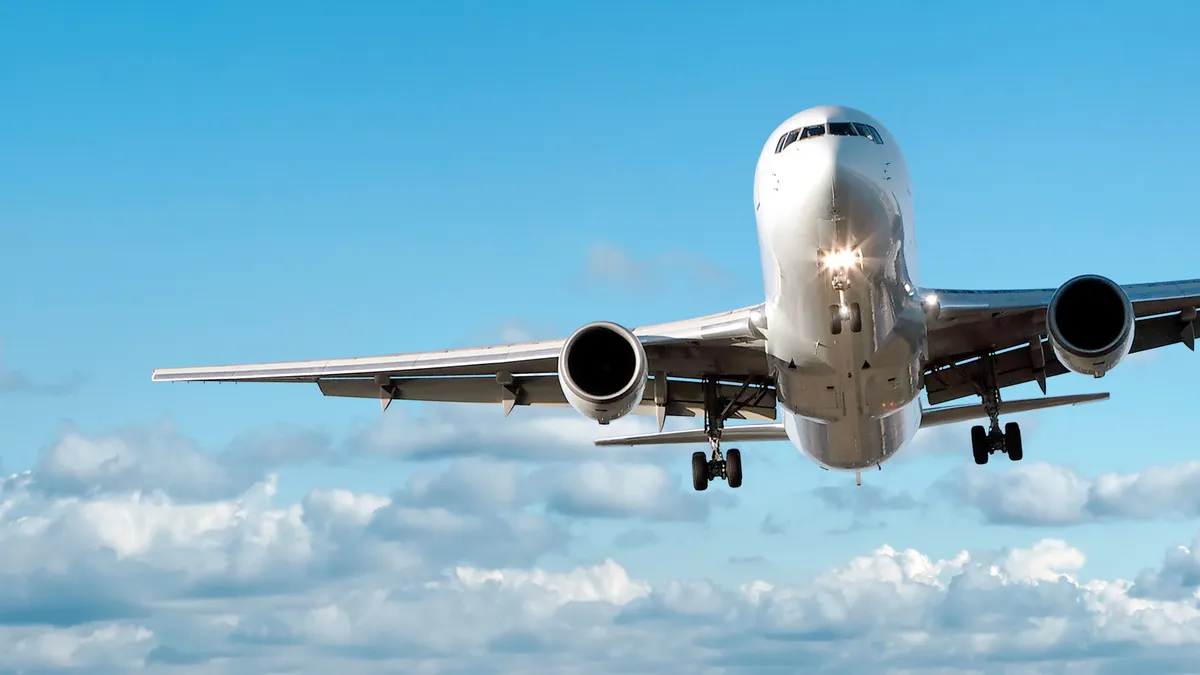Dive Brief:
- After two years of engine shortages at Airbus' Hamburg plant, the factory now has enough engines but is struggling to produce a new version of the popular A321 aircraft, Reuters reports.
- An Airbus spokesperson said pressure from output increases, along with a number of jets still waiting to be delivered following the engine crisis, caused "rescheduling of aircraft deliveries.”
- The aircraft company must deliver 76 single-aisle planes per month during the fourth quarter to meet this year’s target of 800 and reach financial goals.
Dive Insight:
Delays can occur anywhere in the supply chain, and aviation’s is as complex, if not more complex, than most.
The staggering amount of materials needed, including steel, aluminum, copper and more, electronics, plastics, rubber, textiles and chemicals are sourced from around the world. An issue anywhere, whether regulatory (conflict minerals, for example), weather-related or geopolitical, can wreak havoc on the supply chain.
No. 1 Boeing is having much the same issues as its top competitor, No. 2 Airbus. In fact, Boeing has fallen so far behind on deliveries of its 737 model that it is rehiring retired mechanics and inspectors on a temporary basis at its Renton, Washington, facility.
In Boeing’s case, engine deliveries and fuselage deliveries were both delayed and the manufacturer had to find additional space to park the unfinished planes until parts arrived. Both the engine and fuselage suppliers blamed delays on their own suppliers.
According to a Deloitte report, the aerospace supply chain sometimes struggles to keep pace with OEM customers, requiring them to dramatically increase the production rate of components, systems, and services.
Many suppliers changed their business models by "investing in non-recurring research and development for new aircraft production programs, hiring design engineering staff to produce detailed designs for parts, investing in tooling for manufacturing, and directly managing a cadre of lower tier suppliers."
However, the report went on, "many aerospace suppliers have struggled to meet challenges related to the changed pricing and volume expectations, parts shortages, defects, unplanned overtime, and investment requirements" of OEMs.
It’s an issue that won’t go away. Demand for new passenger jets is expected to remain strong, as the International Air Transport Association forecasts airlines will carry 4.4 billion passengers in 2018, compared with 2.7 billion in 2010, Supply Chain Dive reported in July. Boeing and Airbus still plan to deliver a combined 1,600 aircraft this year.














